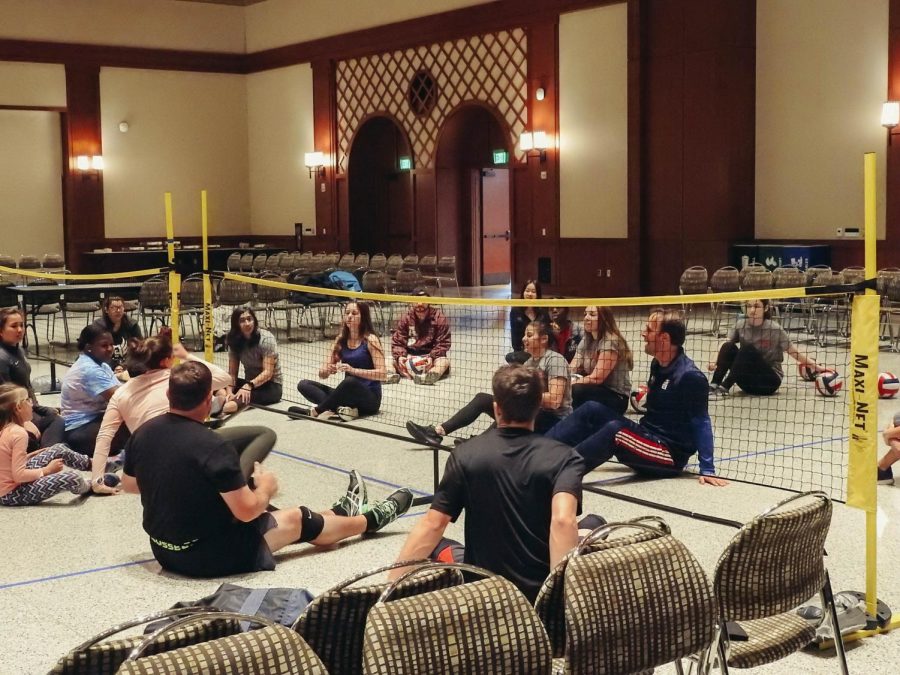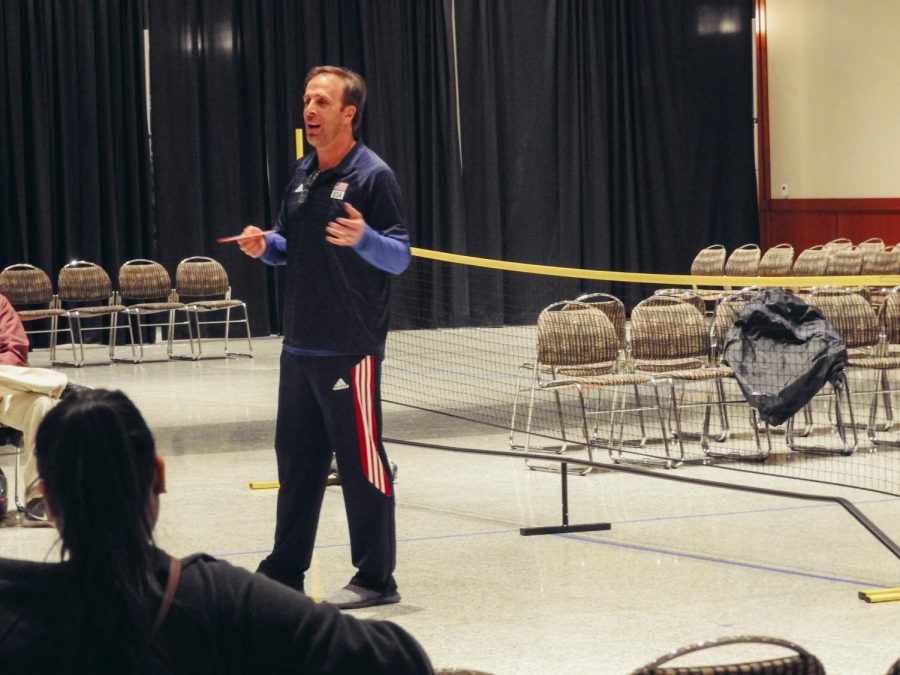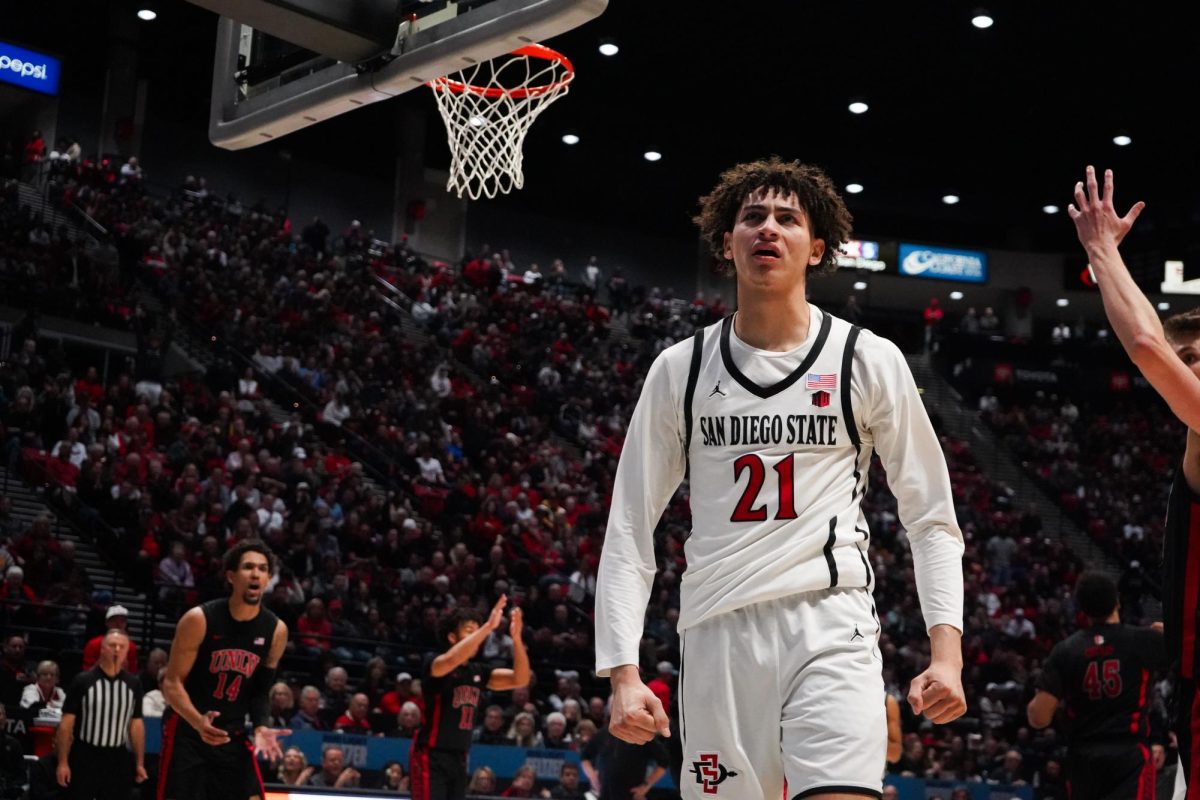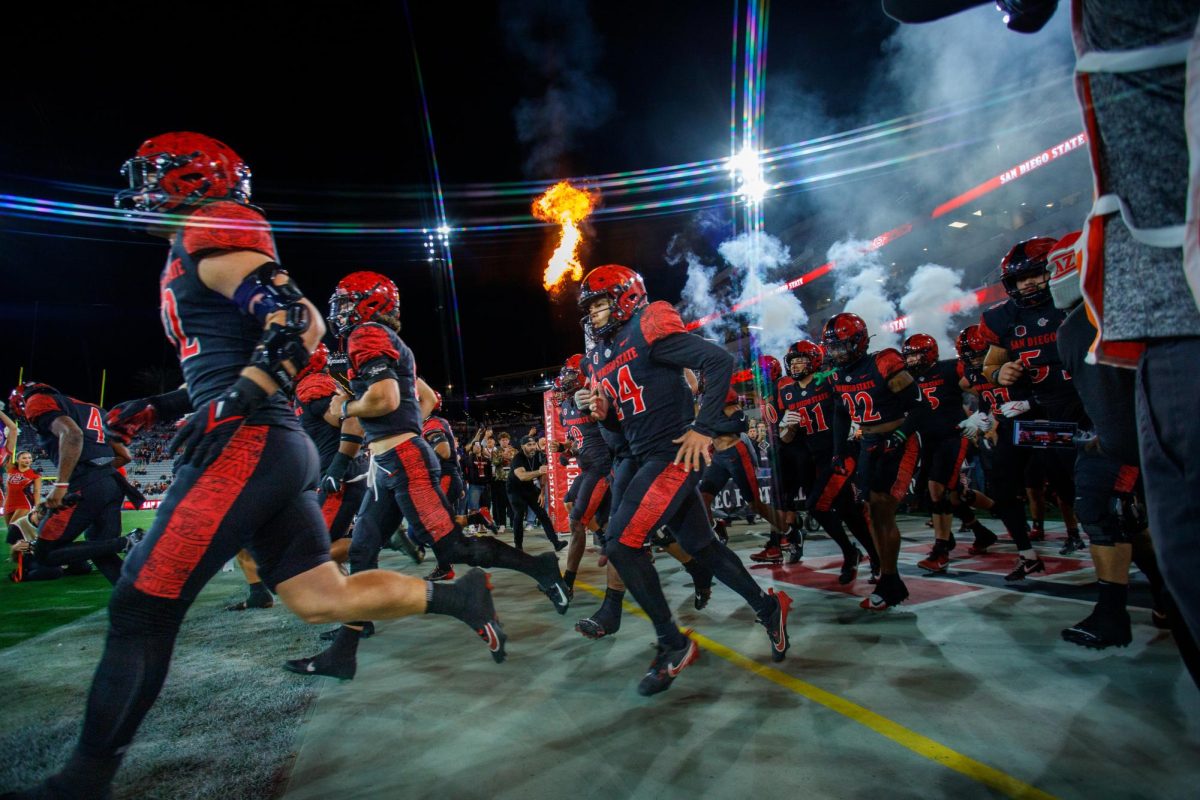San Diego State is stepping up its game by sitting down for adaptive play. On Sunday, Feb. 10 in Montezuma Hall, Aztec Adaptive Sports held what is hoped to become an annual event and the start of some fun that everybody can take a seat for.
“It’s not just for people with disabilities and people with impairments,” Aztec Adaptive Sports president and kinesiology/physical therapy senior Jake Pham said. “It’s for people of all ages and all abilities to come together. ”
The brand-new department, Aztec Adaptive Sports, hosted a three-hour seated volleyball clinic in Montezuma Hall, hoping the sport would place athletes of all abilities and body types together on a level playing field.
“What’s special about this particular event is it’s promoting exactly what AAS is promoting,” Aztec Adaptive Sports event coordinator and kinesiology/physical therapy senior Emily Mays said, “awareness, education and inclusivity of adaptive sports and the athletes that take part in them.”
Pham said the sport is not only inclusive, but easy to set up for anyone who doesn’t have access to a proper court.
“This is the greatest sport because all you need is a net, a ball and some tape,” he said.
Coaching the event was Team USA women’s seated volleyball assistant coach Jon Aharoni, who is also in association with the Challenged Athletes Foundation. He provided a brief rundown of rules and some trivia before leading the players through seated drills.
“This is the fastest game of volleyball you will find anywhere,” he said.
Aharoni was quick to express his fondness for the sport and how it allows people who would normally be excluded from team physical play not just to participate, but to actively compete.
Smiles and movements filled the courts as each person took their turn learning how to serve and sit. They also learned referee hand signals and techniques to use in the heat of play.
Also on deck for coaching and was Patrick Lawrence of the Challenged Athletes Foundation, who is the physical trainer for Team USA’s women’s sitting volleyball team. He fielded balls and personally helped with participants’ form and tactics.
Cooperation seemed to be the very core of this movement as Aztec Adaptive Sports is primed to partner with businesses and organizations that are interested in bringing this sport and others like it to a larger platform.
“I think that the most important thing is opening the eyes of the able-bodied community because often stigmas and stereotypes fill people’s minds,” kinesiology/pre-physical therapy senior and secretary of Aztec Adaptive Sports Dana Zambrana said. “Getting cooperation and meshing the similar values of sport will help us to foster change with this type of program.”
Aztec Adaptive Sports plans to do more to support disabled student athletes in the near future, as the program aims to provide funding and bring more diversity to campus.
“This is the first time that we’ve seen anything like this at SDSU and it’s paving the path for the future in opening up all these opportunities for athletes and people who have never been able to feel this type of support,” Aztec Adaptive Sports treasurer Amanda O’Donnell said.











